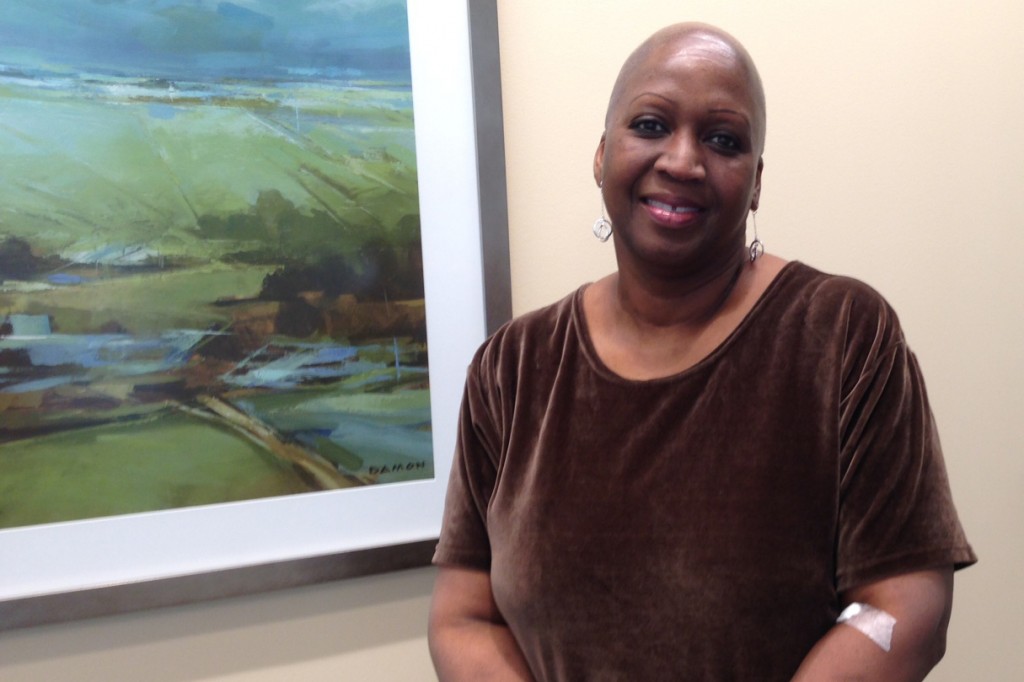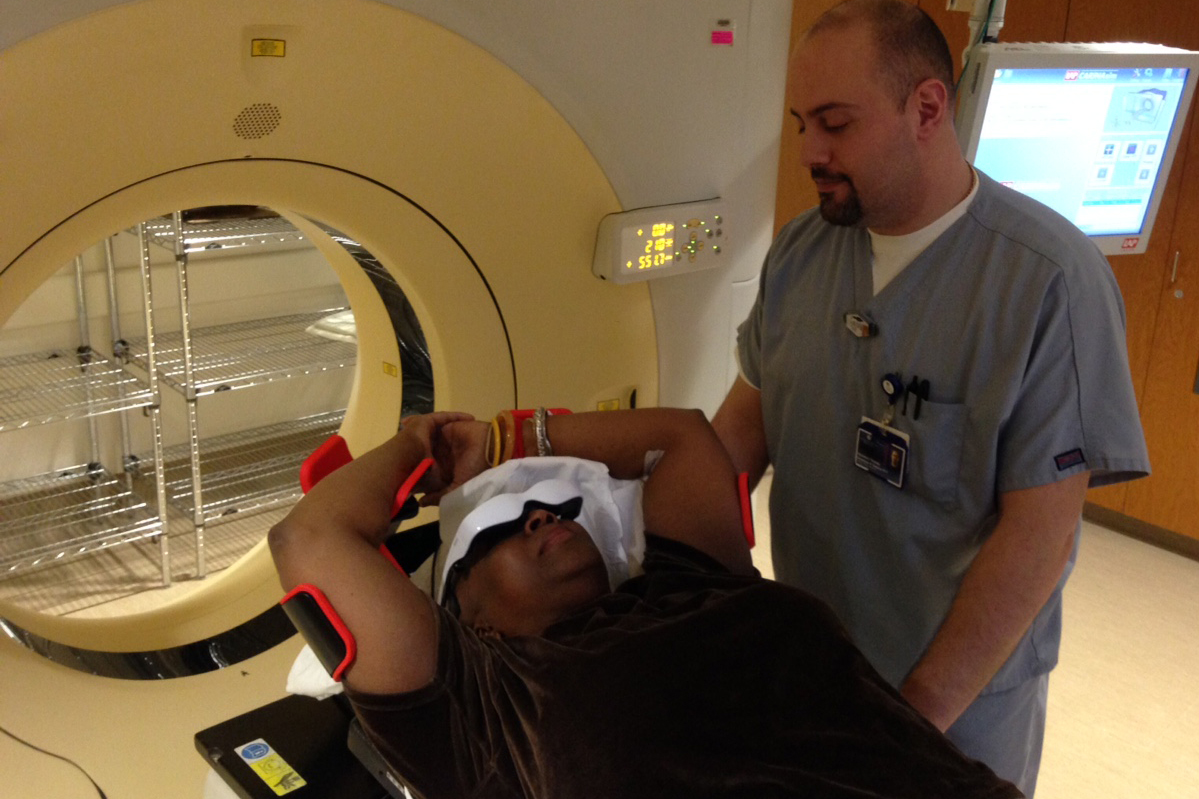Andree Dennis-Gervais, 53, of North Granby, Conn. is a first grade elementary school teacher and mother of three children.
In August last year, she went for her annual mammogram at the Carole and Ray Neag Comprehensive Cancer Center at UConn Health.
“My radiologist found a spot,” says Dennis-Gervais, who was diagnosed with an early Stage I cancer in her left breast. “I was stunned. I have no family history of breast cancer. I didn’t feel a lump, but it was there.”

Dennis-Gervais underwent a lumpectomy at UConn Health to successfully remove her cancer. Also, to reduce her chance of a recurrence of her disease, she completed chemotherapy, followed by radiation therapy that ended on Feb. 25.
But during the radiation therapy targeting her left breast’s cancer, located close to her heart, her doctors at UConn Health took a newly available extra precaution to protect her heart health.
Dennis-Gervais was one of the first patients at UConn Health to use Deep Inspiration Breath Hold technology to reduce the amount of radiation exposure to her heart during treatments.
Prior to starting her radiation therapy, UConn Health’s division chief of radiation oncology Dr. Robert Dowsett and his team taught Dennis-Gervais how to take a deep breath and hold it for 20 to 30 seconds.
“The doctors explained to me that the goal of the deep breath hold technique during radiation treatment was to move my chest wall farther away from my heart muscle to protect it,” says Dennis-Gervais. “It was news to me that my heart could potentially be exposed to low-dose radiation during my treatments. I had no idea it could affect my long-term heart health.”
She says at first, it was hard to imagine how the Deep Inspiration Breath Hold technology would work, but once she wore the virtual-reality goggles that were linked to body scanning cameras measuring her body’s position and breathing, it wasn’t hard to learn to take a deep breath and hold it properly. In addition, an indicator visualized in the goggles gauged the rise and fall of her breath and the expansion of her chest.
Dennis-Gervais says she was reassured by the technology’s advanced safety mechanisms.
“Once you master holding your breath, radiation treatment was easy. If I let go of my breath during treatment, the radiation machine would automatically shut off as a precaution. It was very comforting, especially after becoming aware of the potential side-effects that even low-dose radiation can have upon the heart. The radiation beam would then turn on again, once I took an optimal deep breath and was in the correct body position.”
Dennis-Gervais says she has been emphasizing to all the women at work and in her life: “Make sure you go for your annual screening.”
Since being diagnosed and undergoing treatment, she feels her normal day-to-day life with her kids has been on hold.
But now she is done with cancer treatment, she looks forward to getting back to her daily routine. “I look forward to resuming my life with the kids, getting back on that daily treadmill of running to swimming and lacrosse practices,” she says. “I feel wonderful.”
To learn more about radiation oncology services at UConn Health, go to the Neag Comprehensive Cancer Center website or call 860-679-3225.



